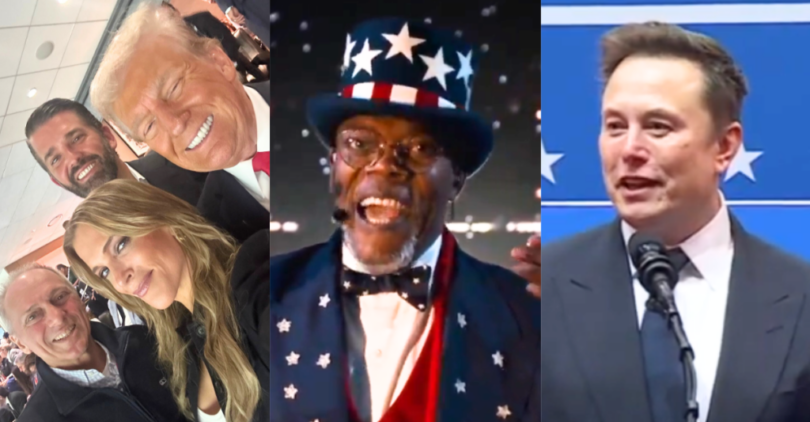DOGE Exposes Fed Grant Regarding the Super Bowl: ‘Why are we Spending Tax Dollars on This?’
The National Institutes of Health (NIH) has come under scrutiny for allocating more than $1.2 million of taxpayer funds to studies examining Super Bowl-related drinking and potential baby booms.
This disclosure has again ignited debates about government spending priorities.
The Department of Government Efficiency (DOGE) has been actively identifying and eliminating what it deems unnecessary expenditures.
Recent actions include canceling federal subscriptions to The New York Times, terminating diversity, equity, and inclusion (DEI) funding and ending millions in consulting contracts.
Good Morning! Happy Super Bowl Sunday
One more thing our money has been wasted on, 1.2 million dollars to study binge drinking and if there is a baby boom 9 months after the Super Bowl pic.twitter.com/UqZ9dMgGUS
— Sarah Sansoni (@sarahsansoni) February 9, 2025
The spotlight now turns to NIH-funded studies related to the Super Bowl, per a report by The Post Millennial (TPM).
One such study, conducted in 2017 and titled “Super Bowl Babies’: Do Counties with Super Bowl Winning Teams Experience Increases in Births Nine Months Later?” received $710,000 in funding.
The research aimed to determine if winning the Super Bowl led to a surge in births in the victorious team’s hometowns.
The findings revealed no consistent pattern of increased births following a Super Bowl win.
Another study, published in 2014 and titled “Super Bowl Sunday: Risky Business for At-Risk (Male) Drinkers,” was granted $563,800, TPM reported.
This research concluded that men who already engage in heavy drinking tend to consume more alcohol on Super Bowl Sunday compared to a typical Saturday.
The study–outlined by TPM–stated: “These findings suggest that heavy drinking during the Super Bowl (and in association with other sporting events), particularly among men, warrants additional attention due to the potential for deleterious public health consequences.”
DOGE Caucus Chair Sen. Joni Ernst (R-IA) expressed her concerns to the Daily Mail, stating, “We’ve been focusing on the Super Bowl, and what we have seen is about $1.2 million spent by the National Institutes of Health on a pair of studies to figure out if there is more binge drinking on Super Bowl Sunday, and then if there is a baby boom nine months later in the winning team city.”
She further questioned the value of such expenditures, asking, “Why are we spending tax dollars on this? I can’t understand what the good is for the American people.”
The DOGE’s initiative to reduce wasteful spending has led to significant budget cuts across various federal programs.
The revelation of these Super Bowl-related studies has intensified discussions about the allocation of federal funds and the importance of ensuring that taxpayer money is used effectively.
The NIH and other federal agencies may face increased scrutiny over their funding decisions As the debate continues, especially concerning studies perceived as having limited practical benefit to the public.
Nineteen Democratic attorneys general have filed a federal lawsuit against the Trump administration, TTOA reported over the weekend.
They allege that the Department of Government Efficiency (DOGE), led by Elon Musk, unlawfully accessed sensitive personal data from the Treasury Department’s central payment system.
The lawsuit, filed in a Manhattan federal court, claims that DOGE’s actions jeopardize billions of dollars in grants, health insurance payments and tax refunds, potentially exposing confidential information of American citizens.
The lawsuit seeks to prevent DOGE employees from accessing this sensitive information, asserting that such actions exceed the agency’s authority and violate federal privacy laws.
Scroll down to leave a comment and share your thoughts.


Leave a Comment